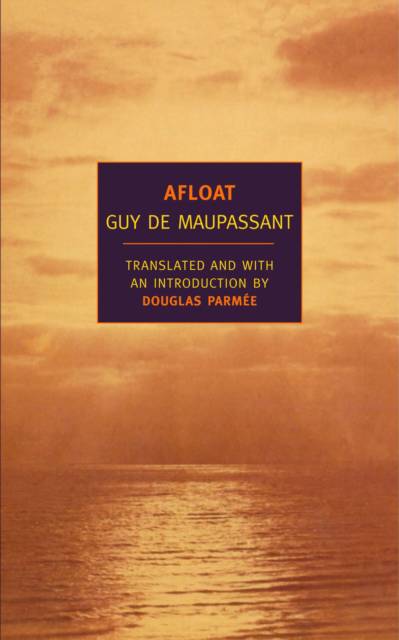
Bedankt voor het vertrouwen het afgelopen jaar! Om jou te bedanken bieden we GRATIS verzending (in België) aan op alles gedurende de hele maand januari.
- Afhalen na 1 uur in een winkel met voorraad
- In januari gratis thuislevering in België
- Ruim aanbod met 7 miljoen producten
Bedankt voor het vertrouwen het afgelopen jaar! Om jou te bedanken bieden we GRATIS verzending (in België) aan op alles gedurende de hele maand januari.
- Afhalen na 1 uur in een winkel met voorraad
- In januari gratis thuislevering in België
- Ruim aanbod met 7 miljoen producten
Zoeken
€ 20,95
+ 41 punten
Uitvoering
Omschrijving
Afloat, originally published as Sur l'eau in 1888, is a book of dazzling but treacherously shifting currents, a seemingly simple logbook of a sailing cruise along the French Mediterranean coast that opens up to reveal unexpected depths, as Guy de Maupassant merges fact and fiction, dream and documentation in a wholly original style. Humorous and troubling stories, unreliable confessions, stray reminiscences, and thoughts on life, love, art, nature, and society all find a place in Maupassant's pages, which are, in conception and in effect, so many reflections of the fluid sea on which he finds himself-happily but forever precariously-afloat. Afloat is thus a book that in both content and form courts risk while setting out to chart the meaning, and limits, of freedom, a book that makes itself up as it goes along and in doing so proves as startling and compellingly vital as the paintings of Maupassant's contemporaries van Gogh and Gauguin.
Specificaties
Betrokkenen
- Auteur(s):
- Vertaler(s):
- Uitgeverij:
Inhoud
- Aantal bladzijden:
- 120
- Taal:
- Engels
- Reeks:
Eigenschappen
- Productcode (EAN):
- 9781590172599
- Verschijningsdatum:
- 29/04/2008
- Uitvoering:
- Paperback
- Formaat:
- Trade paperback (VS)
- Afmetingen:
- 128 mm x 202 mm
- Gewicht:
- 149 g

Alleen bij Standaard Boekhandel
+ 41 punten op je klantenkaart van Standaard Boekhandel
Beoordelingen
We publiceren alleen reviews die voldoen aan de voorwaarden voor reviews. Bekijk onze voorwaarden voor reviews.









